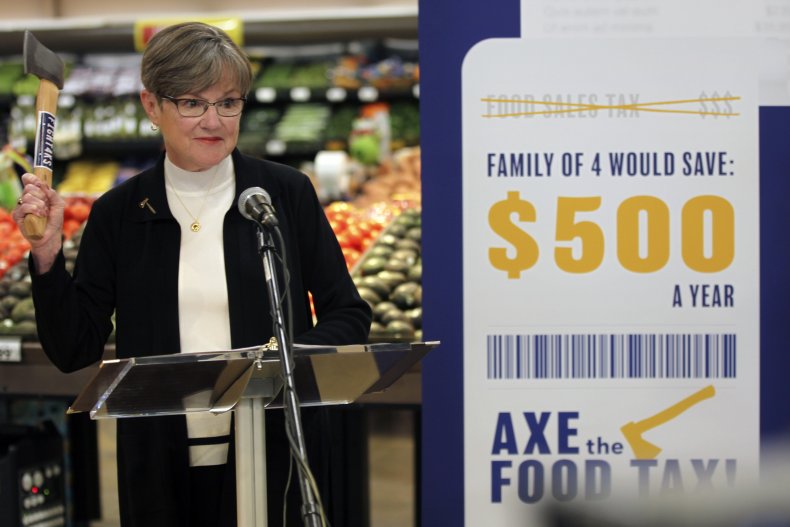Amid Cash Surplus, Kansas Gov. Open to Cutting Tax on Groceries to Save Consumers $450M
Kansas is proposing a new measure that could save families in the state hundreds of dollars a year.
Democratic Governor Laura Kelly is making strides to eliminate the state's 6.5 percent sales tax on groceries. The proposal, which was announced shortly after Attorney General Derek Schmidt called for the elimination of the tax, is estimated to save consumers $450 million a year. She revealed the plan at a Dillons grocery store located in North Topeka.
"We can deliver this for families without diverting resources from other state services or agencies," she announced at the supermarket.
Kansas is one of only 13 states across the country with a sales tax on groceries. Furthermore, it is one of only six that taxes groceries similarly to other goods. It is the second-highest in the nation, falling behind Mississippi's 7 percent sales tax.
This proposal comes when the state is experiencing a large surplus of money in its budget. Tax collections across the state have run 18.9 percent ahead of expectations from July to October. Kelly, who ran on reducing or eliminating the tax during her successful gubernatorial run in 2018, said that she had purposefully waited until now to prevent inflation across the state.
However, some Republicans might use this late decision to push the tax elimination against Kelly in the 2022 elections. She had previously voted bills proposed by the party in 2018 that would have reduced the tax through income tax cuts, citing them as too risky to implement.
This measure is currently expected to bring in support from Kansas consumer voters moving forward. A timeline for an official push into the Kansas Legislature is currently unknown.
For more reporting from the Associated Press, see below.

Kelly could face a partisan fight over credit as she seeks reelection next year.
Schmidt didn't make a specific proposal but told top Republicans in a letter Friday that he is "ready to assist" them in passing a measure.
Kelly held up an axe to symbolize her push to "axe" the tax on groceries and wore an axe pin on her lapel.
The proposal would save consumers $6.50 for every $100 spent on groceries. A family that spends an average of $200 a week on groceries would save $676 over a year.
"Eliminating the sales tax on groceries can immediately benefit all Kansans, and it will provide the greatest help to those in greatest need," Schmidt said in his letter to GOP legislative leaders, echoing an argument that lawmakers in both parties have made for more than two decades.
"I work hard and I try to eat the right foods and try to eat healthy," said Karen Thornwall, a part-time instructor at Washburn University and substitute teacher in Topeka. "A lot of people will say they can't afford to buy even the healthy foods because it's expensive but a lot of it is the tax that we pay on the food as well."
"They always play politics with it," said House Minority Leader Tom Sawyer, a Wichita Democrat, who advocated eliminating the sales tax on groceries during his unsuccessful run for governor in 1998.
Schmidt's campaign posted on social media ahead of Kelly's event Monday that, "We need a governor who will get the job done for Kansas families."


